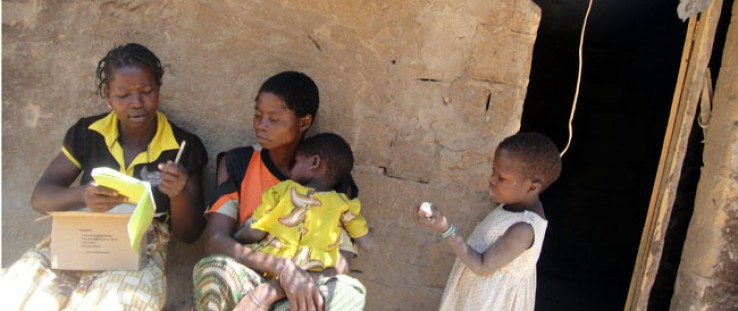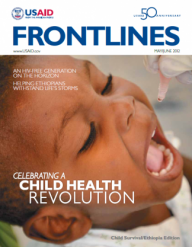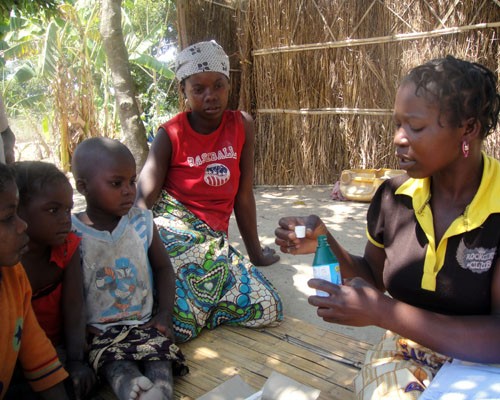 Community health worker Rosalina Casimiro, far left, meets with a family in Nampula province, Mozambique, to distribute kits for water purification that also include soap, condoms and guidelines for family health.
Luisa Chadreque, Pathfinder Nampula
Community health worker Rosalina Casimiro, far left, meets with a family in Nampula province, Mozambique, to distribute kits for water purification that also include soap, condoms and guidelines for family health.
Luisa Chadreque, Pathfinder Nampula
 Community health worker Rosalina Casimiro, far left, meets with a family in Nampula province, Mozambique, to distribute kits for water purification that also include soap, condoms and guidelines for family health.
Luisa Chadreque, Pathfinder Nampula
Community health worker Rosalina Casimiro, far left, meets with a family in Nampula province, Mozambique, to distribute kits for water purification that also include soap, condoms and guidelines for family health.
Luisa Chadreque, Pathfinder Nampula
Health Worker Article Series
Madagascar: Keeping Mothers Safe to Be Mothers
Kenya: Support from Clinic to Hospital to Home
Zambia: Coordinating Roles and Connecting with Care
Mozambique: Strength in Community Care
Bangladesh: Family Planning for Healthier Futures
Timor-Leste: Walking Together on the Long Road to Health
Community health workers like Rosalina Casimiro in Nampula province, Mozambique, play a key role in saving the lives of children. Trained in diarrhea prevention, malnutrition, neonatal care, food security and vaccination, Casimiro supports up to 30 mothers, newborns, and orphans and vulnerable children in her community. With support from Pathfinder, she also distributes condoms and contraceptives, supporting the health of the entire family. As Casimiro explained: “Family planning is important for both mother and child. When mothers with newborns become pregnant too quickly, mothers risk their and their family’s health, and newborns risk malnutrition. So I care for both.”
USAID’s Strengthening Communities through Integrated Programming (SCIP) project improves quality of life through health; water, hygiene, and sanitation; and youth-development services. SCIP is implemented in Mozambique’s Nampula province by local government and a Pathfinder-led consortium including PSI, World Relief, CARE and the Cooperative League of the United States of America. Since 2010, SCIP has worked with Save the Children’s Security through Agriculture and Nutrition project to increase child survival.
Thanks to over 1,300 trained community health workers in Nampula province, SCIP communities have seen several impressive improvements. Districts have observed reductions in childhood malnutrition cases of at least 30 percent; while one district, Erati, registered a 90-percent reduction. Children’s hospital admissions due to life-threatening diarrhea and malnutrition cases have also declined up to 64 percent across the five districts in which SCIP provides this full package of services.










Comment
Make a general inquiry or suggest an improvement.